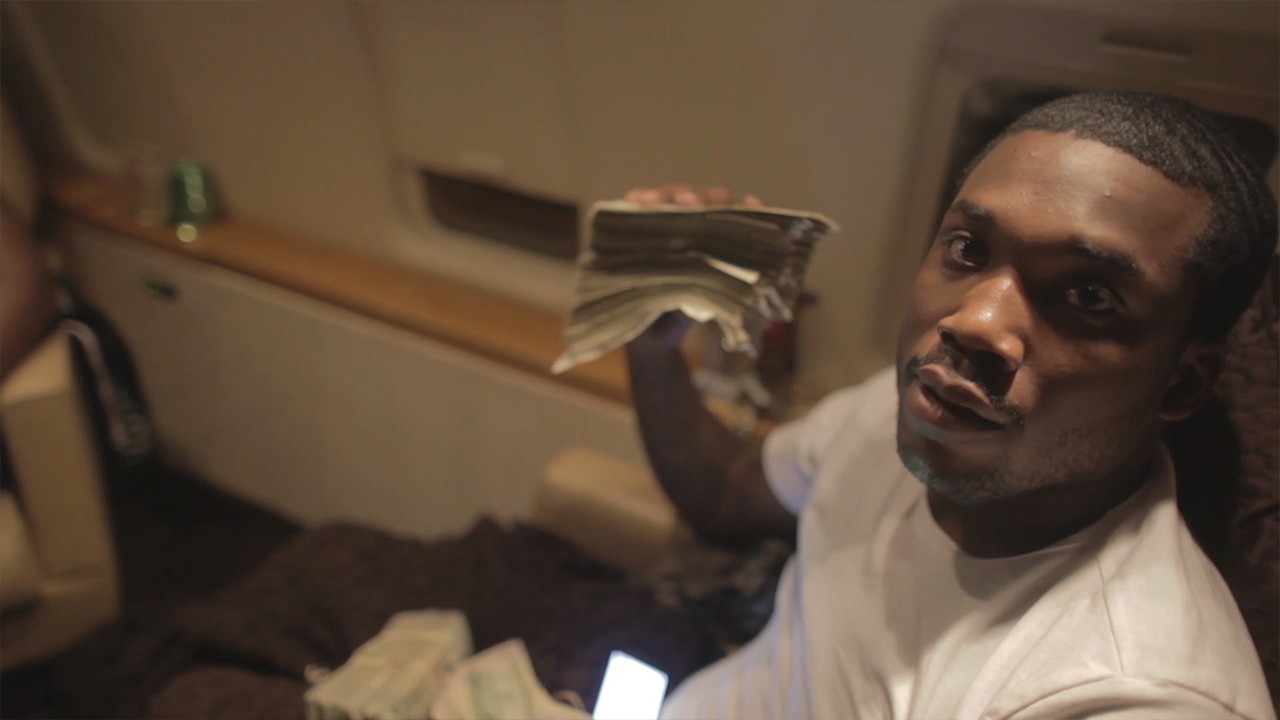There was never a happy ending waiting for Meek Mill in his extended feud with Drake. For every point that he could make to chip away at Drake's reputation, there was an infinite amount of repellent buts; Drake isn't from the street—we know that. He's accompanied by a security detail that employs police officers—who'd expect different? The bulk of his content is pulled from his emotional connection with women—we know that, too. Meek's motivation to reveal Drake as a fraud, while miscalculated, was not born out of ill intentions; he thought that the code by which he lives—largely reflective of rap's rigid old guard—was a universal one. "When I be on some shit sometimes, I just be saying what I really feel. That wasn't the first time I said that," Meek says in a recent interview on the Taxstone podcast in regards to calling rappers out for not writing their music. "If anybody ever watched my interviews, it ain't even just go for that person."That specific effort may have been, at minimum, tone deaf as hell, but it wasn't uncharacteristic of Meek's quick-to-action, Robin Hood-like persona. In 2012, after watching clips of his acrobatics on YouTube, Meek took Chino Braxton, then a supremely talented 15-year-old street dirt bike rider from Baltimore, and helped him become the first street rider to receive major endorsements. In 2013, he signed the now-deceased, 17-year-old Lil Snupe 20 minutes after the Baton Rouge rapper walked up and handed him a demo. These are the beautiful results of Meek Mill's impulsive approach to good karma.When that impulse to be altruistic goes left, you get incidents like Meek's recent fallouts with The Game and Beanie Sigel, which stemmed from an alleged phone call to Sean Kingston tying The Game to a robbery of the singer's money and jewelry in an LA nightclub back in June. The subsequent diss songs and negative sound bites directed at Meek put him back in focus as the rap world's favorite punching bag, over a year after his standoff with Drake was initiated. And while most of these encounters have been viewed as negatives for Meek, it's done nothing but keep he, and his adversaries, relevant. Before Meek expressed his disapproval for Drake not writing his own rhymes, very few people were aware of Quentin Miller's existence. The Game's previous swarm of press came after taking mirror selfies in his underwear. Beanie Sigel had long been an afterthought. And even with the mainstream hold he already has, Drake surely benefitted from having an enemy—someone who could be used to prove that, while being more openly vulnerable than most, he could handle himself in rap's most drooled over element, beef. None of the mess Meek's found himself in over the past fifteen months gets any airtime in his newest project,DC4,though. He only uses it as a launching pad to set the project's tone as he raps "remember they thought I was done done," in its opener, "On The Regular." Tory Lanez makes the lone indirect Drake reference on one of the project's strongest songs, "Litty Again," rapping "I just counted up a Quentin Miller / A QM, that's a quarter milli." Among tracks where Meek raps high-octane, triple-time verses boasting about driving Rolls-Royce Wraiths, flooded Rolex watches, and cashing out on his mom's insurance, "The Difference" withMigos' Quavo, "Offended," with Young Thug and 21 Savage, and sure-fire single "Froze" featuring budding superstarLil Uzi Vert andNicki Minaj stand the tallest.Pre-Drake and even more after the beef, Meek's oration has been widely reduced to frantic screaming by the online rap community instead of a highly-skilled rapper's impassioned, unfiltered delivery. The aforementioned songs show Meek as what we know him to be—a gifted artist who's capable of being a chameleon when needed. At one point, he goes back and forth trading sharp punchlines with A Boogie wit Da Hoodie affiliate Don Q on "Lights Out" then, on the next track, he turns around and rhymes over a sample of Blues singer Snowy White's "Midnight Blues," rapping "Been through some shit and I'm sick of jail / No disease but I'm sick of cells / Sick and tired of sending niggas mail / Calling niggas just to get a bail."Still, songs like the forthright "Shine" justify the frustration of fans and disregard from casual listeners who describe Meek as a rapper who leans too heavily on his raw talent. One of DC4's brightest spots, here he spends time warning kids from the hood to steer clear of a life that'll get you in the ever-growing American prison population, he talks about the risks he had to take to get where he is, and how he'd never jeopardize that position by stooping to violence against agitators—the complete opposite to how he usually says he'd handle feuds.DC4 feels like the Meek Mill we would have gotten much sooner if his more-than-solid post-prison album Dreams Worth More Than Money wasn't clouded by a dead-end beef. It paints him as the complicated person he is: willing to be a beacon of hope for overlooked and deprived youths being raised in America's ghettos while simultaneously warning them to stay away from the dangers that he prides himself on participating in. That tug-and-pull probably won't be ending in Meek Mill's career, and if the focus stays on how he can continue to be an outlet for those in whom he sees a younger version of himself, he may be able to carry on with his rise without being a press opportunity for those aware of his short fuse.Lawrence Burney is a Staff Writer at Noisey. Follow him on Twitter.
None of the mess Meek's found himself in over the past fifteen months gets any airtime in his newest project,DC4,though. He only uses it as a launching pad to set the project's tone as he raps "remember they thought I was done done," in its opener, "On The Regular." Tory Lanez makes the lone indirect Drake reference on one of the project's strongest songs, "Litty Again," rapping "I just counted up a Quentin Miller / A QM, that's a quarter milli." Among tracks where Meek raps high-octane, triple-time verses boasting about driving Rolls-Royce Wraiths, flooded Rolex watches, and cashing out on his mom's insurance, "The Difference" withMigos' Quavo, "Offended," with Young Thug and 21 Savage, and sure-fire single "Froze" featuring budding superstarLil Uzi Vert andNicki Minaj stand the tallest.Pre-Drake and even more after the beef, Meek's oration has been widely reduced to frantic screaming by the online rap community instead of a highly-skilled rapper's impassioned, unfiltered delivery. The aforementioned songs show Meek as what we know him to be—a gifted artist who's capable of being a chameleon when needed. At one point, he goes back and forth trading sharp punchlines with A Boogie wit Da Hoodie affiliate Don Q on "Lights Out" then, on the next track, he turns around and rhymes over a sample of Blues singer Snowy White's "Midnight Blues," rapping "Been through some shit and I'm sick of jail / No disease but I'm sick of cells / Sick and tired of sending niggas mail / Calling niggas just to get a bail."Still, songs like the forthright "Shine" justify the frustration of fans and disregard from casual listeners who describe Meek as a rapper who leans too heavily on his raw talent. One of DC4's brightest spots, here he spends time warning kids from the hood to steer clear of a life that'll get you in the ever-growing American prison population, he talks about the risks he had to take to get where he is, and how he'd never jeopardize that position by stooping to violence against agitators—the complete opposite to how he usually says he'd handle feuds.DC4 feels like the Meek Mill we would have gotten much sooner if his more-than-solid post-prison album Dreams Worth More Than Money wasn't clouded by a dead-end beef. It paints him as the complicated person he is: willing to be a beacon of hope for overlooked and deprived youths being raised in America's ghettos while simultaneously warning them to stay away from the dangers that he prides himself on participating in. That tug-and-pull probably won't be ending in Meek Mill's career, and if the focus stays on how he can continue to be an outlet for those in whom he sees a younger version of himself, he may be able to carry on with his rise without being a press opportunity for those aware of his short fuse.Lawrence Burney is a Staff Writer at Noisey. Follow him on Twitter.
Advertisement
Advertisement

